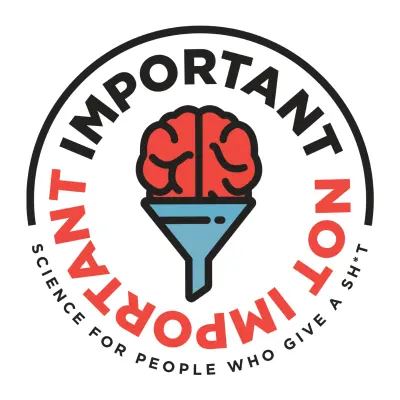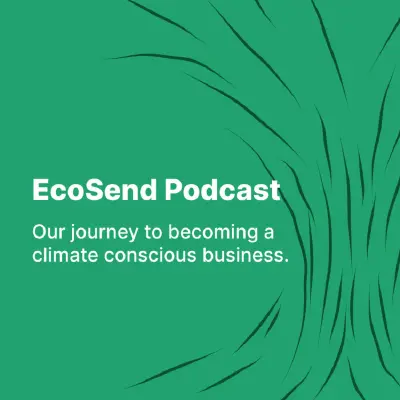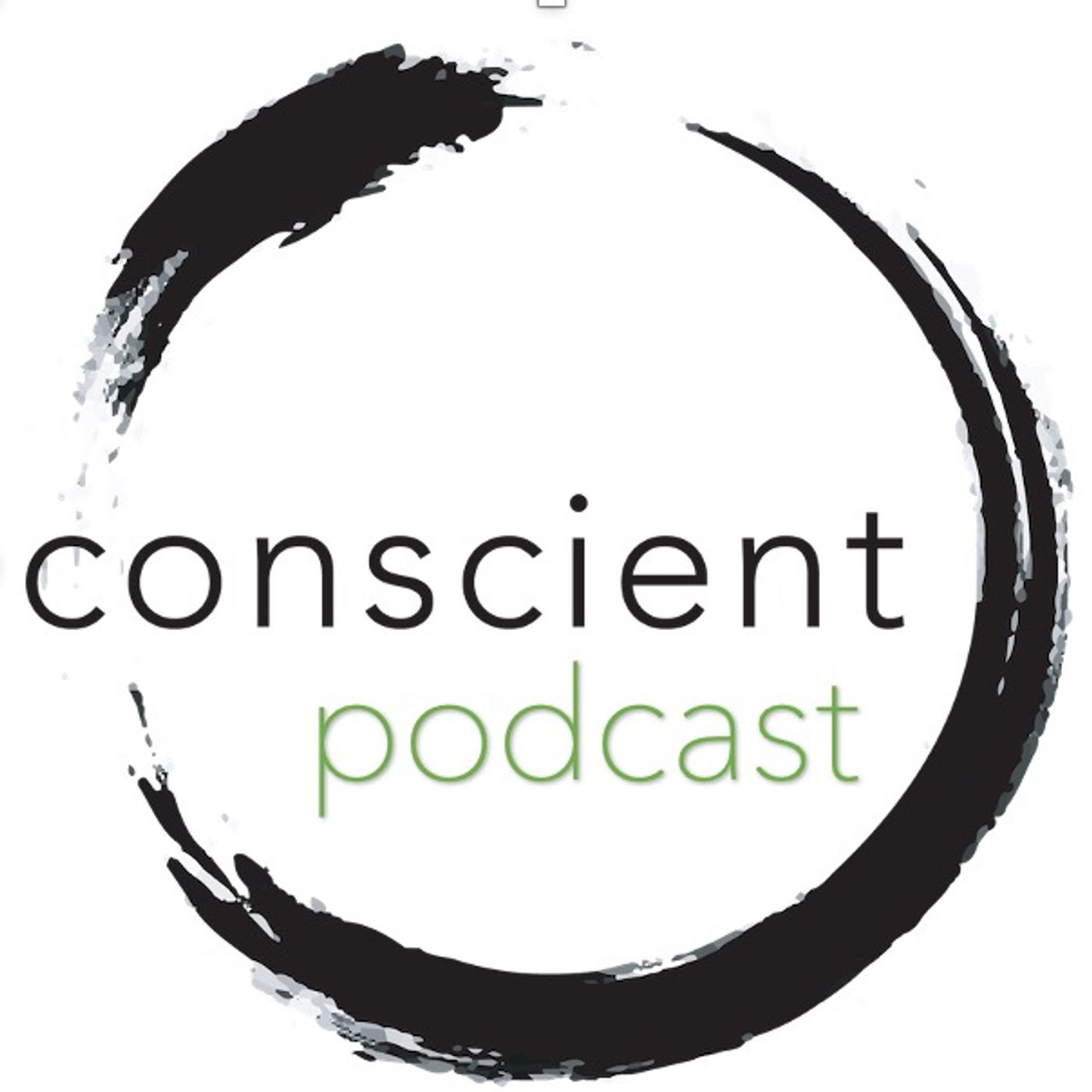Podcasts about Climate action
Episodes about Climate action
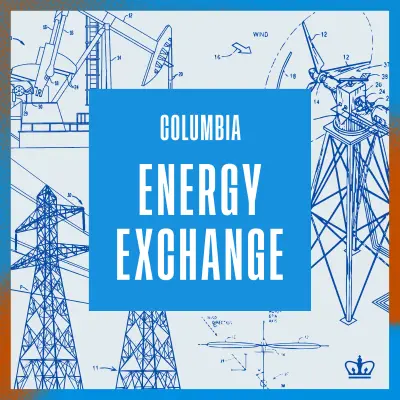
In today's polarized political landscape, energy policy has become increasingly partisan. States rich in both fossil fuels and renewable resources must confront growing electricity demand and aging infrastructure. Meanwhile, the Trump administration is pushing to defund critical energy projects under the Inflation Reduction Act while also opening new fossil energy development on public land. And congressional efforts at energy permitting reform have stalled despite broad agreement on the need to streamline approvals. So what will it take to move beyond four-year election cycles and develop an enduring energy strategy? How can lawmakers build coalitions in this divided environment? And can we craft energy policies that serve both economic and environmental goals? This week, Bill Loveless speaks with former Senator Joe Manchin about the state of US energy policy. Following his tenure as governor of West Virginia, Joe Manchin served as a US Senator from 2010 to 2024. As chairman of the Senate Energy Committee, he played a pivotal role in shaping major energy legislation, including the Bipartisan Infrastructure Act and the Inflation Reduction Act. Today, he serves on the Bipartisan Policy Center's Energy Council and is writing a memoir, titled Dead Center, which is set to be released in September. Credits: Hosted by Jason Bordoff and Bill Loveless. Produced by Mary Catherine O’Connor, Caroline Pitman, and Kyu Lee. Engineering by Sean Marquand. Stephen Lacey is executive producer.
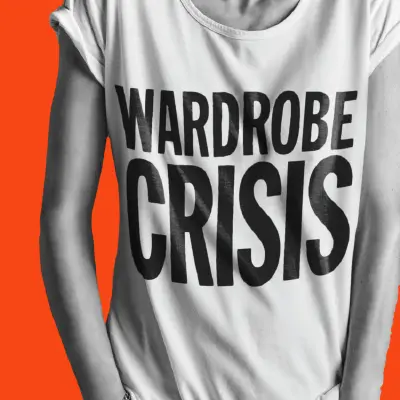
May 21, 2025
Clare's Take: 5 Lessons from Australia's First Big Sustainable Fashion Conference
WARDROBE CRISIS with Clare Press ❭
How do you feel about competition? Do you think it’s healthy? Natural? Are you that person who has to win at Scrabble or tennis or the pub quiz?Or maybe you've read your Gaia theory and are hooked on the idea of a harmonious, post-patriarchal ecosystem that's all about balance and working together.Many of us have come around to thinking that, at least when it comes to sustainability, it's being hyper-competitive that got into this mess. So you might be surprised to learn that competitive sustainability is the latest thing... we were!This week on the pod, find out what else we gleaned from Australia’s first big sustainable fashion conference.Featuring: New Era Bio, Alt Leather, Wildlife Drones and more.Thank you to the Growth Activists for making this episode possible.Find all the links & further reading at thewardrobecrisis.comTell us what you think? Find Clare on Instagram @mrspressGot recommendations? Hit us up!And please share these podcasts.THANK YOU x Hosted on Acast. See acast.com/privacy for more information.
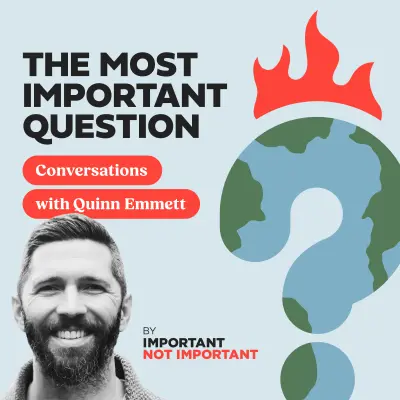
This week: There are a million legitimate reasons why standing up to bullies may require a pseudonym (and a cowl), or even anonymity.As has been clear for centuries, and even more so in this moment of inescapable mass surveillance, some of us — by nature of our birth nation, skin color, ethnicity, sex, gender, religious beliefs, and/or who we love — are in far more clear and present danger than someone like me.And yet — millions of people over decades and centuries have stood in broad daylight and put their names and their bodies, their finite time and resources to the test, on the line, to fight for a better future for themselves and the generations to come.Here's What You Can Do:Donate to the Electronic Frontier Foundation to defend digital privacy.Volunteer with organizing initiatives through Tech Shift, to help build a fairer, more just technological future.🌍️ Get educated about where your data is going online by using the Markup’s Blacklight tool.🌍️ Be heard about unlocking global energy data so that researchers worldwide have access to it.Invest in tech for good and use your capital to scale climate tech with Carbon Equity.Get more:Take action at www.whatcanido.earthGet more news, analysis, and Action Steps at importantnotimportant.comSupport our work and become a Member at
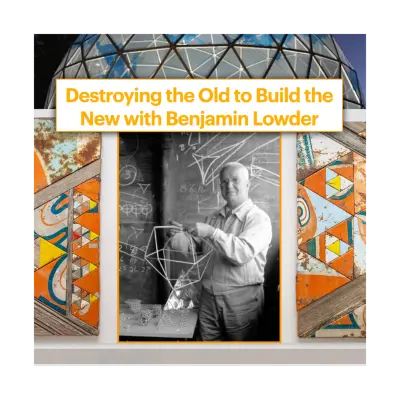
Feb 24, 2025
Destroying the Old to Build the New with Benjamin Lowder
Climate Change in the Multiverse ❭
Visual artist and Buckminster Fuller scholar Benjamin Lowder talking about creating in alignment with the natural structures and patterns of the Universe, transmuting spells and word magic, how fear feeds the demiurge, the tension between fighting the old and building the new, and what it means to support Bucky's legacy.
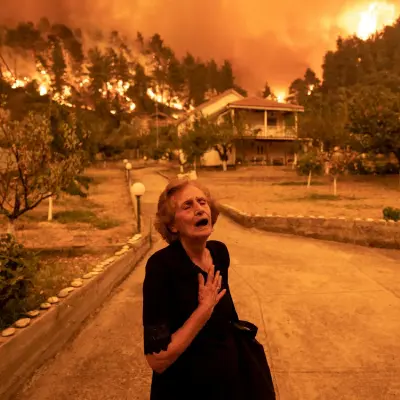
Join Dr. Ciarán O’Carroll on 'Climate Change for Beginners' for an eye-opening episode titled 'Why is Chocolate so Expensive?' Explore the intriguing world of chocolate production, uncovering the deep impact of climate change on cocoa prices, shrinkflation, and the livelihoods of West African farmers. Learn about the broader implications of our changing climate on global food supplies, human rights, and what it means for your favorite sweet treats. This fun, accessible podcast breaks down complex issues into beginner-friendly insights, making it the perfect listen for anyone looking to understand the environmental and economic forces shaping our world and our chocolate. Tune in to discover how climate action and sustainable practices can ensure the future of food and indulgence for generations to come.
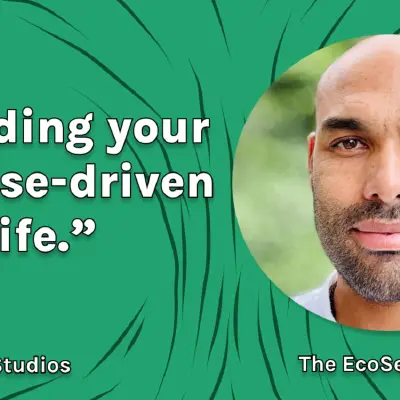
Aug 30, 2023
S3 #4 'Building your purpose-driven business, and life!' - with Tom Hardy of Manifesto Studios
The EcoSend Podcast ❭
It's Episode 4 of our third season here at The EcoSend Podcast, and we've got an episode to share with you which is guaranteed to warm your soul!The team at EcoSend have known Tom Hardy, founder at Manifesto Studios, for many years now, and we were delighted to welcome him onto the hot-seat. Tom gave us a fantastic episode and opportunity to share in his philosophy and experience in integrating purpose into your life. Our topics for this episode include:- How Tom was driven to starting his own company, after experiencing Greenwashing practises in the Corporate world.- The importance of authentic communications for brands who are endeavouring to be more purpose-driven.- How change at the world's largest companies often needs to come from changemakers and evangelists within, rather than outside of those organisations. - How to balance short and long-term motivations when taking on clients, during your early days running a purpose-driven company.- The importance of defining your own values in order to avoid following the value systems of others. - How success in one's career doesn't always correlate with a sense of contentment in life.- ... and much more!Feeling a bit lost in how to align your career with your values? Struggling to make meaningful change within an organisation? Curious about starting your own purpose-driven brand?If the answer to either of these questions is yes, you'll love this session of the podcast! Please sit back and enjoy, as Tom takes you on a journey of how to write your own story in life and career. About Tom Hardy:Tom is the Founder of Manifesto Studios, the Branding and Communications experts with a growth mindset. He works as an Executive Creative Director, collaborating with visionary leadership teams, and on projects making a positive impact to people's lives. For over twenty years he's created award winning work with ambitious global brands, designing innovative solutions which power change.Further Resources from the episode:Tom on LinkedIn: https://www.linkedin.com/in/tomhardycreative/Manifesto Studios: https://www.manifesto-studios.com/Edelman Trust Barometer 2023: https://www.edelman.com/trust/2023/trust-barometer

Aug 18, 2023
The effort to restore Joshua trees after Mojave wildfire faces grim odds
Environment : NPR ❭
After flames destroyed 1.3 million Joshua trees in Mojave National Preserve, biologists began replanting seedlings. But many have died, and now another fire has torched more of the iconic succulents.

while doing my qi gong one morning I heard roofers removing tiles and recalled simplesoundscape in 2016…TRANSCRIPT OF EPISODE(bell + sound of roofers taking off tiles)While doing my daily qi gong on May 25, 2023 I was listening to roofers removing tiles on a nearby house. I’ve always been troubled and fascinated by the sound of deconstruction… of things being ripped apart… of the undoing of objects held together with glue, nails or screws. I sometimes feel the pain of the wood, metals and minerals. I sometimes feel like a part of me lives within these materials.I think about where these materials came from - their extraction from the earth - and how we treat them when they are no longer useful to us. I feel gratitude towards these living beings who provide us with shelter and comfort.Now I want to take you back to another encounter with deconstruction, in August of 2016, the very first recording of my simplesoundscapes project about mindful listening. Here is the recording from the very first episode of simplesoundsccapes: (beginning of simplesoundscapes pilot episode with nails being removed in background)This pilot episode of simplesoundscapes explores the ecological and philosophical implications of deconstruction. I have a lifelong interest in environmental issues, in particular with acoustic ecology and so when I heard both the violence and the poetry of siding being removed and nails being extracted from a wall on our cottage, I was compelled to record it and to start this podcast series called simplesoundscapes. So this particular recording was captured in mono on an ipad with the ipad on a window sill. It was recorded in August 2016 in Duhamel, Quebec. I invite you to think about the following question: ‘If construction is the art and science of building and deconstruction is its opposite, selective dismantlement, how then can we constructively deconstruct?’How can you constructively deconstruct?*CREDITSThanks to the roofers that I recorded and all the best with the development of green practices in your industry. I am grateful and accountable to the earth and the human labour that provided me with the privilege of producing this episode. (including all the toxic materials and extractive processes behind the computers, recorders, transportation and infrastructure that make this podcast possible).My gesture of reciprocity for this episode is to American Foundation for Suicide Prevention.
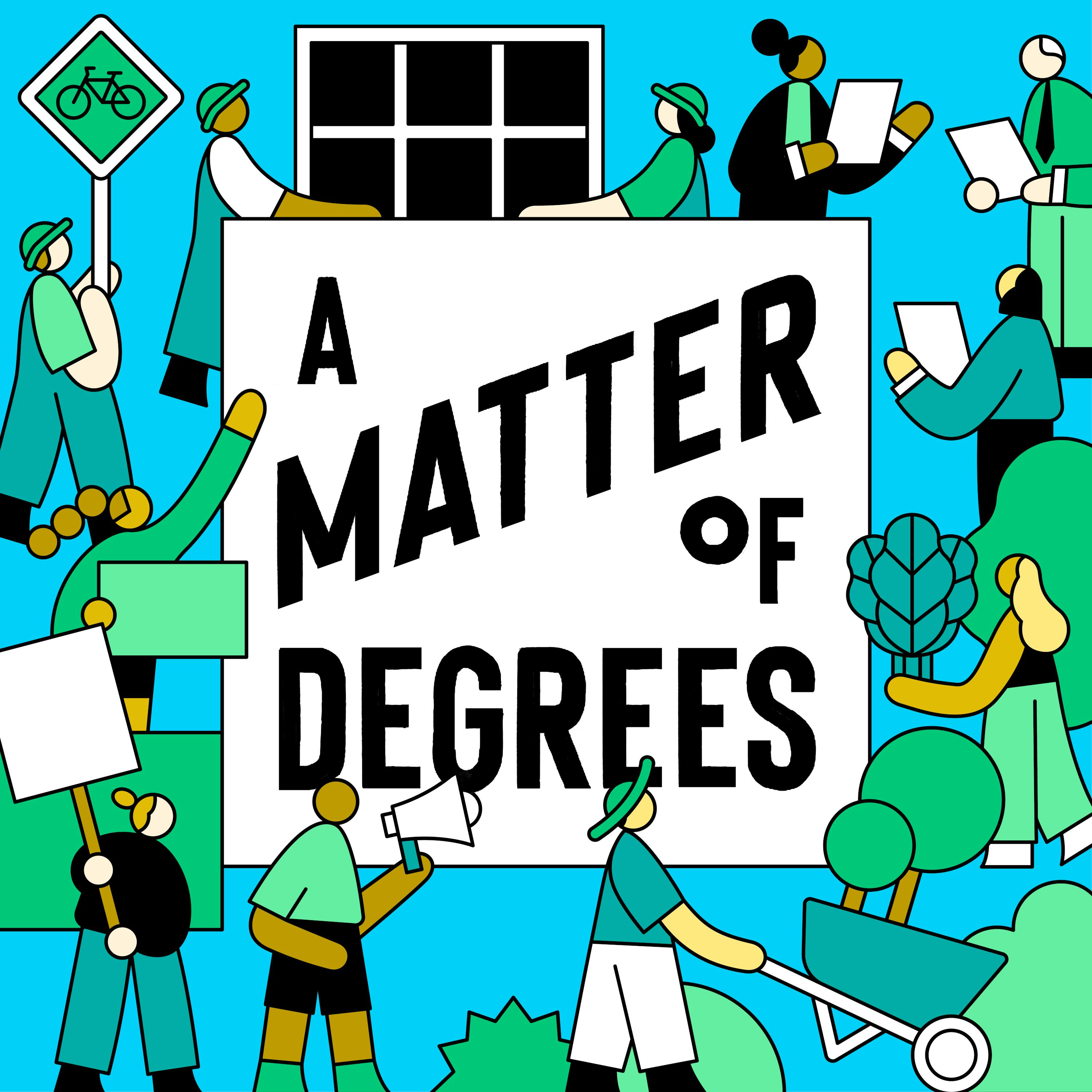
Welcome back for a bonus episode of A Matter of Degrees! We were lucky enough to sit down with Rebecca Solnit — author, historian, and climate activist — to talk about her newest climate anthology, Not Too Late. Leah and Nikayla Jefferson both wrote essays for the book and joined Rebecca onstage for this live episode.
Not Too Late gets at the tough, vital work of culture change and features diverse climate voices from around the world. In this episode, Leah, Nikayla, and Rebecca hold an expansive conversation about hope, love, and how to stay engaged in the climate movement.
Rebecca has written over twenty books on a diverse range of topics, including feminism, history, social change, and of course climate change. Our listeners may also recognize Nikayla as a guest host from our episodes on “The Stages of Black Climate Grief” and “The Journey of Justice40”.
Read up on the top ten social drivers of climate change that Nikayla mentions in the episode. For more inspiration, visit the Not Too Late website, created by Rebecca Solnit and Thelma Young Lutunatabua to shift the climate story from despair to possibility. Discover meaningful ways to take climate action via The All We Can Save Project.

Jul 11, 2023
Electricity Pulled from Humid Air! 50/100 Campaign Wraps and We Planted Another 10,000 Trees!!! Hiatus
The Climate Daily ❭
Electricity pulled from humid air! And did we mention the 50/100 Campaign Wrapped and we planted another 10,000 trees!!! Plus, Hiatus...
